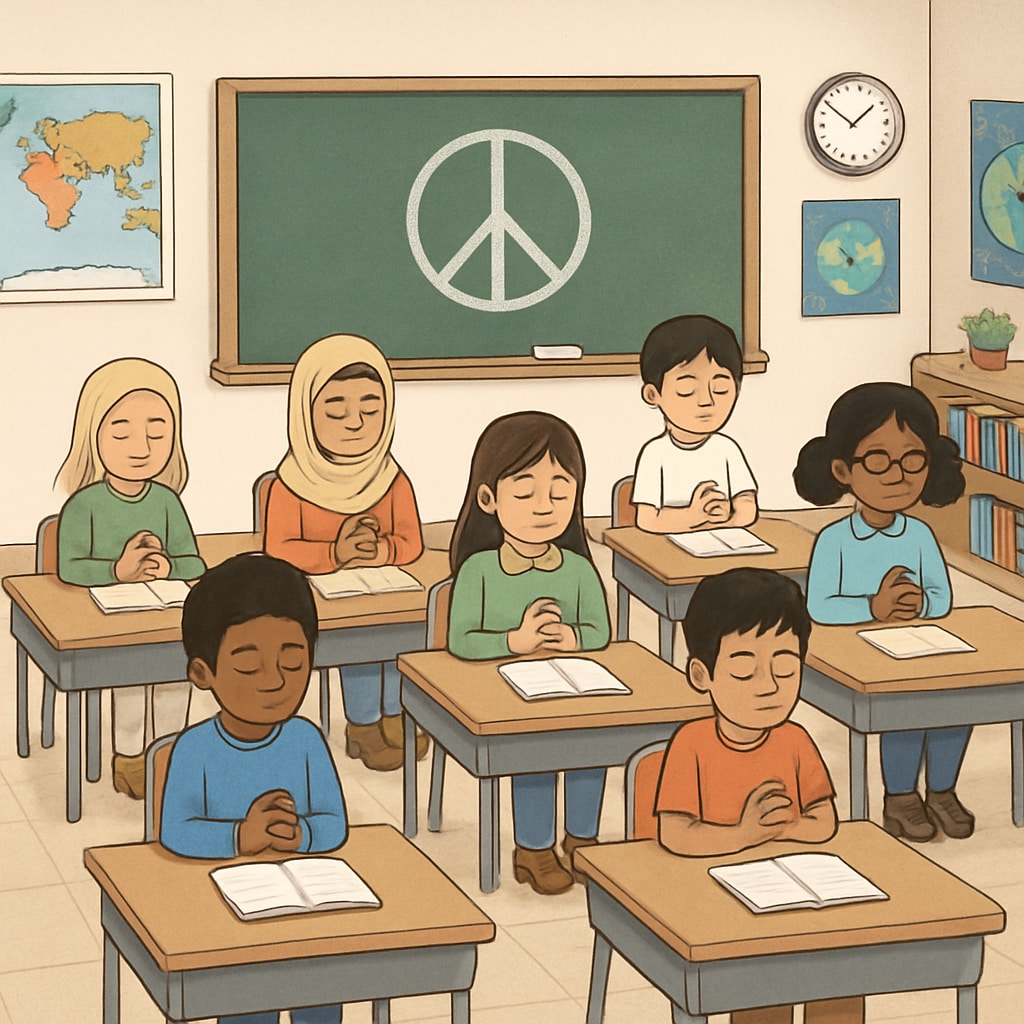The decision by schools to replace “one minute of silence for Gaza” with a broader “silence for all war victims” has sparked debates surrounding moral responsibility and neutrality in education. While this shift appears to reflect inclusivity and avoids taking sides in politically sensitive issues, critics argue this choice could signal an evasion of ethical responsibility, particularly in cases of ongoing humanitarian crises. How should schools balance neutrality with moral engagement when addressing such topics?

Neutrality in Education: A Shield or a Barrier?
Neutrality in education often aims to create a safe space for students from diverse backgrounds, avoiding divisive political or religious narratives. However, when schools apply this principle to global crises like the Gaza conflict, the implications can be profound. By broadening the scope of a memorial silence to include “all war victims,” schools may inadvertently dilute the urgency and specificity of certain crises.
For example, conflicts like the Gaza crisis—which involve acute humanitarian suffering and international attention—can lose visibility under the umbrella of generalized remembrance. Critics suggest this approach risks turning neutral stances into passive complicity, where silence becomes an excuse to avoid engaging with uncomfortable truths.

The Role of Schools in Moral Education
Schools play a critical role in shaping the moral compass of young minds. By addressing sensitive topics like the Gaza crisis, educators can foster empathy, global awareness, and critical thinking. However, this role comes with challenges.
- Inclusivity vs. Specificity: Balancing inclusivity without erasing the particularities of individual crises.
- Age Appropriateness: Tailoring discussions on complex global issues to the cognitive level of students in K12 environments.
- Community Sensitivities: Navigating diverse cultural and political backgrounds within a school community.
For educators, the decision to address or avoid specific crises like Gaza is not merely a pedagogical choice—it reflects the institution’s values and stance on moral responsibility.
Can Neutrality Be Truly Neutral?
The concept of neutrality itself is contentious. While it may aim to prevent bias, neutrality often involves making active choices about what to include—or exclude—in educational narratives. For instance, by choosing to generalize “silence for Gaza” into “silence for all war victims,” schools may unintentionally downplay the gravity of ongoing crises like Gaza and the unique challenges faced by its victims.
As a result, neutrality can sometimes perpetuate invisibility, particularly for crises that lack widespread representation in mainstream discourse. Critics argue that true neutrality should not mean avoiding specific recognition—it should mean equitable acknowledgment of all crises.
Furthermore, students are perceptive, and such decisions can shape their understanding of the world. If schools avoid addressing specific events, it may inadvertently teach students to shy away from confronting difficult or controversial topics.
Striking the Right Balance
To navigate these challenges, educators and schools can adopt strategies that balance inclusivity with meaningful engagement:
- Contextual Discussions: Provide age-appropriate context for global events, ensuring students understand their significance.
- Empathy Building: Use storytelling and personal narratives from affected communities to humanize crises.
- Collaborative Decision-Making: Involve students and parents in discussions about how schools should address global issues.
- Focus on Universal Values: Frame discussions around universal themes like peace, justice, and human rights.
By adopting these approaches, schools can move beyond neutrality and foster a generation of compassionate, informed individuals capable of engaging with global challenges.
Conclusion: The Moral Imperative of Education
In the debate surrounding “Gaza memorial silence” versus “all war victims silence,” the key question remains: What is the moral responsibility of schools in addressing sensitive global issues? While neutrality may protect institutions from controversy, it risks erasing the identities and struggles of specific victims. Education, at its core, is about equipping students to navigate complexity with compassion and critical thought. Schools have a unique opportunity—and responsibility—to engage with these issues in ways that inspire understanding and action.
Ultimately, the decision to broaden or focus memorial acts reflects deeper values about the role of education in society. Schools must carefully consider whether their choices align with the goals of fostering empathy, global awareness, and active citizenship among their students.
Readability guidance: This article uses short paragraphs, includes lists to summarize ideas, and avoids excessive passive voice. Key points are distributed evenly, with transitions like “however,” “in addition,” and “for example” used to enhance flow.


